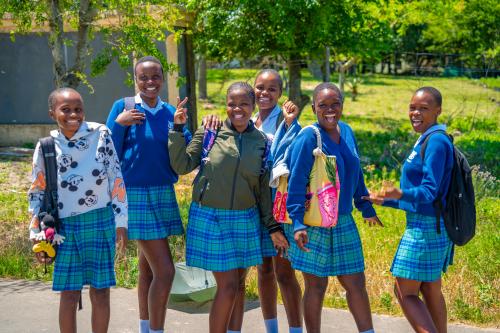The debate over whether Pakistan’s religious seminaries or ‘madrasas’ fuel militancy has overshadowed a larger question of whether Pakistan’s education system, including its public and private schools, is helping to mitigate the threat of violence, or is it just throwing more oil onto the fire?
This question deserves close attention in policy circles, given the domestic and international security stakes and the U.S. pledge to triple economic assistance to Pakistan under the 2009 Kerry-Lugar bill. For FY2010, this pledge includes a total of $334.7 million for education, of which $264.7 million is for basic education.
In a new report, entitled Beyond Madrasas: Assessing the Links between Education and Militancy in Pakistan, we argue that madrasas represent only one piece of the story of how education intersects with violence in Pakistan. Therefore, Pakistan’s education system as a whole should be viewed as an important risk factor.
The report was released last week at an event hosted by the United States Agency for International Development, a testament to USAID Administrator Rajiv Shah’s emphasis on using open dialogue and evidence-based research to inform USAID programming. (The report was neither funded nor commissioned by USAID.)
Dr. Shah opened the discussion by highlighting the importance of quality education in fostering peace and stability. Congresswoman Nita Lowey (D-NY), a long-time champion of global education and sponsor of the Education for All Act of 2010, emphasized education as a key pillar of democracy. She stressed the importance of addressing lack of education as one of the root causes of militancy.
Rebecca Winthrop gave an overview of the report’s key findings and highlighted Pakistan’s abysmally low attainment rates with just 54 percent of adults able to read; fewer than a quarter of Pakistani girls complete primary school; only one-third of children receive a secondary education. These statistics do not bode well for the future and economic prospects of Pakistan’s children, who constitute a majority of the population. Nor do they bode well for peace and stability in South Asia and beyond. As recent conflict research shows, a country like Pakistan that ranks near last in the world in terms of educational attainment rates is at significant risk of new or continued conflict.
School attainment is only part of the story, though. Education quality likely plays an equally important role, for reasons outlined in the report. Yet even Pakistani children who are in school learn very little. As the path-breaking survey research on education by the LEAPS project shows, many children still cannot recognize letters or numbers after 3 to 5 years of school!
Steve Inskeep, host of NPR’s Morning Edition, Bruce Riedel, Brookings senior fellow, and Dr. Ayesha Siddiqa, senior visiting professor at Johns Hopkins SAIS, served as panelists at the report launch and provided insights from their respective fields. Mr. Riedel underlined the unprecedented public hostility toward the U.S. in Pakistan, arguing that constancy in the US engagement with Pakistan is now critical in order to help regain the confidence of the populace and leaders. Dr. Siddiqa referred to her forthcoming study on the pervasiveness of militant attitudes even across elite universities and highlighted the need to address both access and quality. Mr. Inskeep detailed his recent travels and reporting from the Grand Trunk Road along the Pakistan border and provided concrete examples of corruption and patronage in Pakistani schools.
Ultimately, much will depend on whether Pakistan’s leaders have the will to change course and reform the education sector. Creative approaches are necessary to incentivize Pakistan’s elite to institute real reforms. If the past is any indication, Pakistan’s recently unveiled National Education Policy is unlikely to translate into significant gains on the ground. However, one promising initiative offers a window of hope. The new Pakistan Education Task Force, supported heavily by the U.K. government with increasing involvement by the U.S., seeks to build the capacity of Pakistan’s provinces to implement this new education policy. As Bruce Riedel aptly noted at the report launch, the stakes in Pakistan are simply too high for pessimism.
The Brookings Institution is committed to quality, independence, and impact.
We are supported by a diverse array of funders. In line with our values and policies, each Brookings publication represents the sole views of its author(s).



Commentary
Too Many Children Left Behind in Pakistan, Fueling Militancy
June 28, 2010